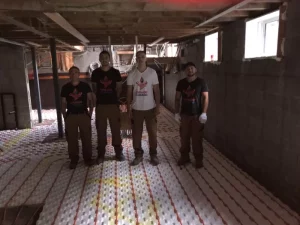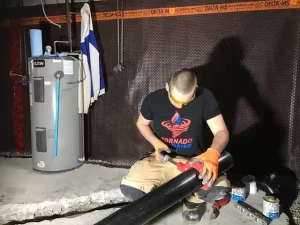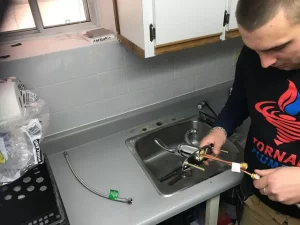Are you a homeowner with a basement? If so, make sure you have a sump pump installed to keep your property safe. Heavy rainfall, plumbing issues, a foundation problem, and other reasons could result in basement flooding. Irrespective of the cause of flooding, water damage can be a big nuisance. So, to prevent basement flooding, wise homeowners install sump pumps. You might also have heard about it but are not sure what exactly it is and whether you need to install one in your home. So, let’s find out!
What is a Sump Pump?
Basement flooding is a common problem that results in costly water restoration services, plumbing repairs, and other expenses. However, a sump pump act as a line of defense against basement flooding and protects your house from water damage. Installing a sump pump in your basement or crawlspace can minimize the risk of flooding and resultant damage. A special pit is dug in the lowest point in your home to install a sump pump. The purpose of this pump is to remove excess water and take it away from your property. A sump pump is not the same as an ejector pump which is used to drain wastewater from your bathroom toilet or sink to the city line. Sump pumps are designed to drain out flooded water from the basement floor.
Reasons to Install a Sump Pump
The primary purpose of installing a sump pump is to prevent basement flooding. Removing excess water means it also helps in avoiding moisture buildup that could lead to mold growth. To know more about sump pumps, read further to find out the major reasons to install a sump pump to complement your home’s plumbing.
1. Keep Your Home Dry
As mentioned above, sump pumps are used to drain excess water and keep the basement or crawlspace dry. Due to heavy rain or any other reason, when water starts filling up the pump pit, the pumps start draining the water and take it outside through a pipe. A slope is created around the property to ensure the easy flow of excess water away from the building. So, the collected water is discharged and released outside the house. To prevent water backflow issues, there’s a check valve between the pump and the pipe. It means that even if you’re going out of town, a sump pump will keep your house safe by detecting rising water levels.
2. Protection from Other Issues
A sump pump not only prevents flooding but also helps in avoiding other issues. Keeping your home dry means there are fewer chances of mold and mildew growth. Moisture leads to mold which harms your health and damages your home’s structure. Removing excess water also helps in preventing foundation-related problems. It also reduces the risk of electrical fires which often occur post-flooding.
3. Increases Value of Your Home
Sump pumps help in stabilizing the soil to make the building more stable. Homebuyers understand the value of sump pumps and the valuable function they perform. If you ever want to sell your house, homebuyers will be likely to pay more for a home that has less risk of flooded basements and crawlspaces.





